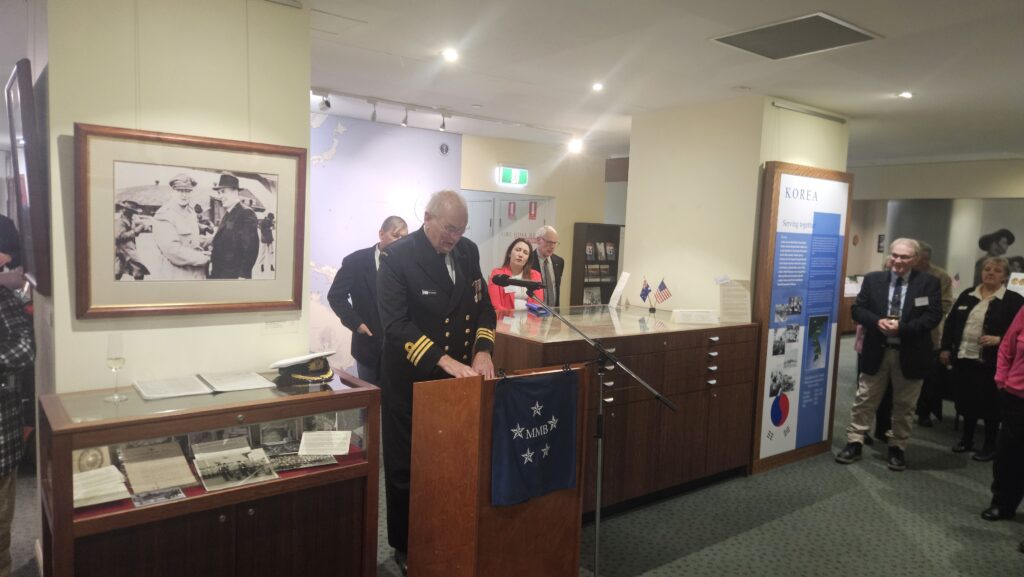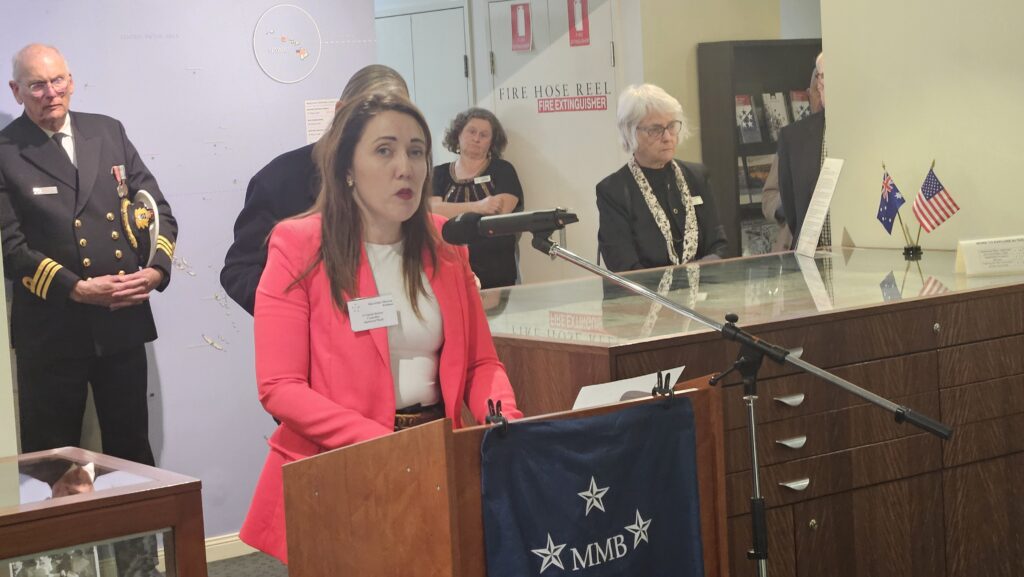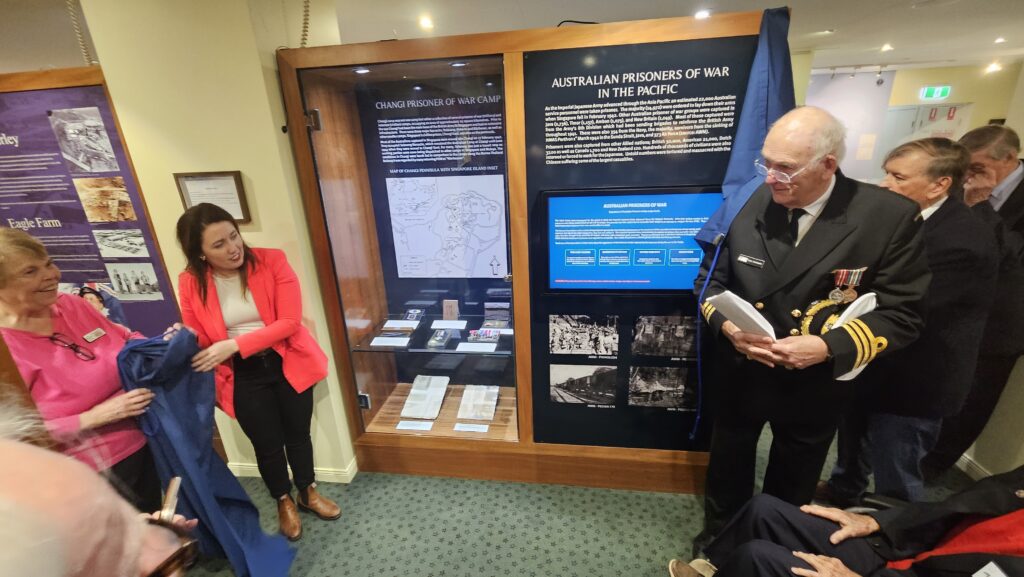On Friday 15 August 2025, the Chair of the Camp Columbia Heritage Association (CCHA) attended the official 80th anniversary of Victory in the Pacific (VP Day) commemoration in Brisbane at the invitation of Cr Sarah Hutton, who represented Lord Mayor Adrian Schrinner at the event. The event was hosted by the Board of the General Douglas MacArthur Memorial Foundation and volunteers of the MacArthur Museum, and included the unveiling of a new Prisoners of War (POW) display.
While CCHA’s upcoming international symposium in late August 2025 will commemorate and explore the contributions of all Allied Forces in Brisbane during WWII, the VP Day commemoration focused on remembering Australia’s experience in the Pacific War.
The significance of VP Day
On 15 August 1945, the surrender of the Imperial Japanese Government to the Allied Powers was officially announced, marking the end of the war in the Pacific. On 2 September 1945, aboard the USS Missouri in Tokyo Bay, General Douglas MacArthur signed the surrender documents on behalf of the Allied Powers.
Individual Allied representatives also signed:
- Australia – General Sir Thomas Blamey
- United Kingdom – Admiral Sir Bruce Fraser
- Netherlands – Lieutenant Admiral Conrad Emil Lambert Helfrich
For prisoners of war held by Japan, the surrender brought long-awaited freedom. Conditions in captivity were brutal, and death rates were high.
Allied POWs in Japanese captivity
The new display at the MacArthur Museum recognises the courage, determination, and resilience of those who endured years of mistreatment. The statistics below highlight the scale of suffering across key Allied nations:
| Nation | POWs Captured | Deaths in Captivity | Death Rate |
|---|
| Australia | 21,726 | 7,412 | 34.1% |
| Netherlands | 37,000 | 8,500 | 22.9% |
| United States | 21,580 | 7,107 | 32.9% |
| United Kingdom | 50,016 | 12,433 | 24.8% |
| Canada | 1,691 | 273 | 16.1% |
| New Zealand | 121 | 31 | 25.6% |
| Total Western Allied | ~132,134 | ~35,756 | 27.1% |
These figures reflect the shared hardship faced by soldiers, sailors, airmen, and civilians, many of whom endured forced labour, malnutrition, and mistreatment over several years of captivity.
See also: Hell Ships: Dutch and Australian POWs in the Java–Moluccas Corridor
A moment of reflection
For CCHA, VP Day is not only about remembering the strategic Allied victory but also about honouring the personal stories of endurance—many connected to Brisbane’s wartime role as a major Allied headquarters, including Camp Columbia at Wacol.
The VP commemoration in Brisbane was a moving occasion that connected history, memory, and the importance of preserving these stories. It also served as a fitting prelude to CCHA’s own international symposium at the end of August, which will shine a spotlight on the co-operation of Australia, the USA, the Netherlands, and the UK in Brisbane during WWII.



